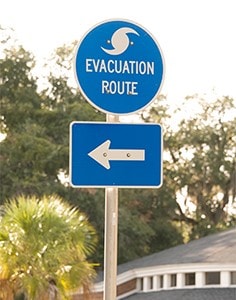Tuberculosis Information for Emergencies and Disasters
Updated March 22, 2023
If you are currently taking treatment for TB disease and have been temporarily or permanently displaced from your home because of an emergency or disaster, contact your state or local TB program.
The Importance of TB Treatment
It is very important that people who have tuberculosis (TB) disease are treated, take the drugs exactly as prescribed, and finish the medicine. If they stop taking the drugs too soon, they can become sick again. If they do not take the drugs correctly, the TB bacteria that are still alive may become resistant to those drugs. TB that is resistant to drugs is harder and more expensive to treat.
TB Program Preparedness

Mass evacuations and damage caused by major emergencies or disasters can make efforts to help TB patients continue their treatment very difficult. TB programs’ work ensures that people who are receiving treatment for TB disease are able to continue their treatment, even if they are displaced temporarily or permanently by an emergency or disaster.
Ensuring continuity of TB treatment during emergencies and disasters should be included as part of public health emergency preparedness planning. In the event of an emergency or disaster, TB programs should:
- Make sure contact information for patients is current, and staff can reach patients if they decided to evacuate to another location.
- Provide to patients contact numbers of TB program personnel.
- Consider alternative treatment delivery methods, such as video directly observed therapy (vDOT), if policies and procedures are in place.
Preventing TB Transmission in Shelters
Emergency managers, shelter managers, and public health professionals are taking measures to reduce the possible spread of COVID-19 among people who seek safety in a disaster shelter during severe weather events.
Here are some tips to help you prepare and lower the risk of infection while staying safe in a shelter.
In response to an emergency or disaster, communities may open emergency or temporary shelters. Existing shelters may also expand their hours. Shelter managers, staff, and clients should be aware of TB and ways to prevent TB transmission. The following messages may be helpful reminders for organizations and agencies involved in sheltering activities.

- Tuberculosis (TB) is spread through the air from one person to another, when someone with TB disease coughs, speaks, or sings.
- Symptoms of TB disease may include a cough that lasts 3 weeks or longer, chest pain, weight loss, and night sweats.
- If anyone in your shelter has symptoms of TB disease, contact the state or local TB program immediately. If possible, use respiratory control measures to reduce the risk of transmission.
- Encourage all shelter staff, volunteers, or clients who are coughing to wear a mask.
- Provide disposable paper or cloth surgical masks to any symptomatic person.
- Separate those coughing until medically evaluated and found to be free of disease or are no longer contagious.
- Encourage staff and volunteers who are coughing to stay home until they are no longer coughing.
- Facilities should consult with their local health department about the necessity and frequency of TB screening for staff, volunteers, and clients.
- Notes from the Field: Tuberculosis Control Activities After Hurricane Harvey — Texas, 2017
- Tuberculosis Control Activities Before and After Hurricane Sandy — Northeast and Mid-Atlantic States, 2012
- Integrated Preparedness for Continuity of Tuberculosis Care After Hurricanes Gustav and Ike: Louisiana and Texas, 2008
- Tuberculosis Control Activities After Hurricane Katrina — New Orleans, Louisiana, 2005
- Going to a Public Disaster Shelter During the COVID-19 Pandemic
- State TB Control Offices
- CDC Emergency Preparedness and Response
- TB Guidance for Hurricane Workers and Evacuees: Identifying Persons in Your Evacuation Center Who May Have TB
- Infection Control After a Disaster
- Infection Control Recommendations for Prevention of Transmission of Respiratory Illnesses in Disaster Evacuation Centers
- Infection Control Guidance for Community Evacuation Centers Following Disasters
- Curry International Tuberculosis Center Homelessness and TB Toolkit
- CDC Questions and Answers about Tuberculosis
- Find TB Resources
- Treatment for TB Disease
- National Tuberculosis Controllers Association